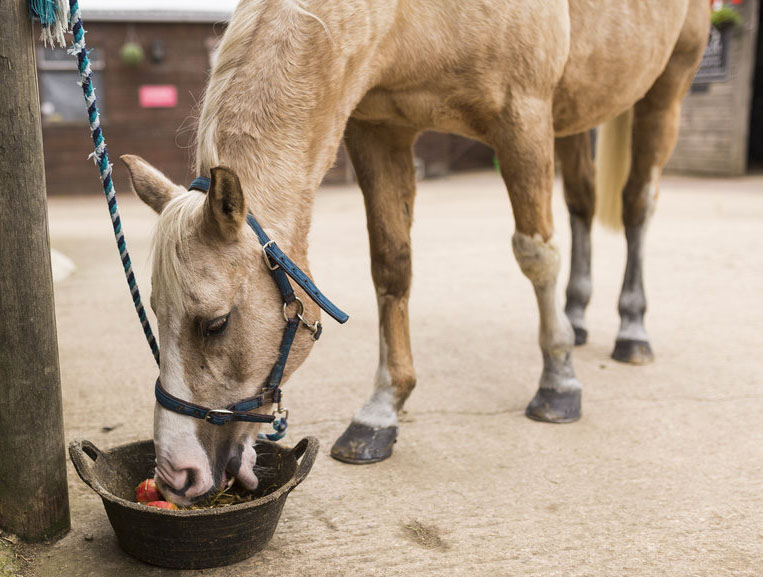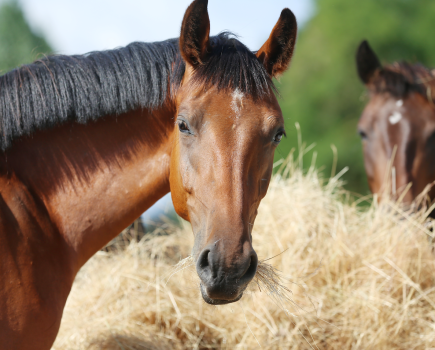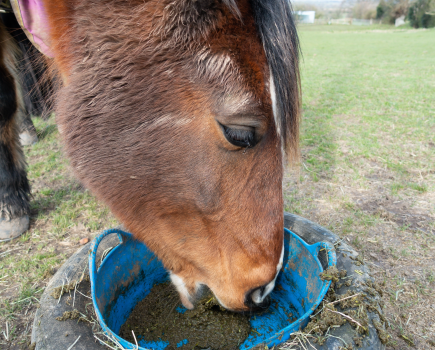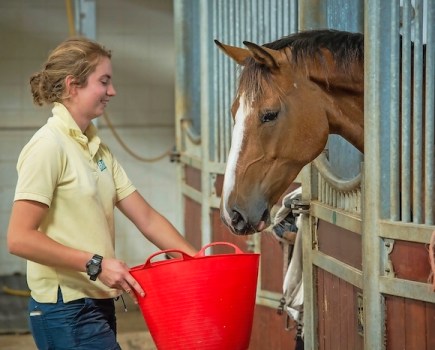Have you noticed your veteran losing more weight than normal this winter?
It’s healthy for most horses to drop a little condition when it’s colder outside. But with an older horse, it’s more important than ever to make sure you’ll doing all you can to keep him feeling (and looking) fit and healthy.
Diet plays a big part in that. Equine nutritionist Donna Case shares her four golden rules for what to look for when assessing a veteran’s health.
- Check his teeth
Is he able to chew his feed properly (both hard feed and forage)? Check that he is not quidding (losing semi-chewed food from the side of his mouth). If he is it may also be necessary to consider a hay replacer, depending on the severity. Consult your vet or dental technician for advice. - Check his condition
Is your horse maintaining his weight nicely? Often horses need to lose a little weight over winter, particularly native types. However, if you are noticing a real difference or sudden loss of condition, it needs to be addressed. Speak to your vet in the first instance to rule out any other possible factors. - Is he bright and alert?
Keep an eye out for any changes in your horse’s behaviour or temperament. You know him best, and subtle changes could be early signs that something isn’t quite right. - Is he coping happily with his workload?
Getting out of the stable and moving around — whether that’s turnout, exercise, in-hand work or access to a large all-weather area — is important, particularly for older horses whose joints are susceptible to stiffness, aches and pains in the cold.
Is your horse moving freely and coping well with what you are asking of him? Or are you finding he is stiffer than normal? Perhaps he takes longer to warm up? Try to keep tabs on what is normal for him.
Just like humans, horses age at different rates and may need extra nutritional support earlier or later than their stable mates. Many horses over 16 (the official age a horse is classed a veteran — although many go on to lead happy, active lives into their twenties and beyond) are still competing at the highest level and may not be feeling their age at all.
The best advice is to get to know what is best for your horse, and be aware of changes to his behaviour and condition. The early you do something, the better.









